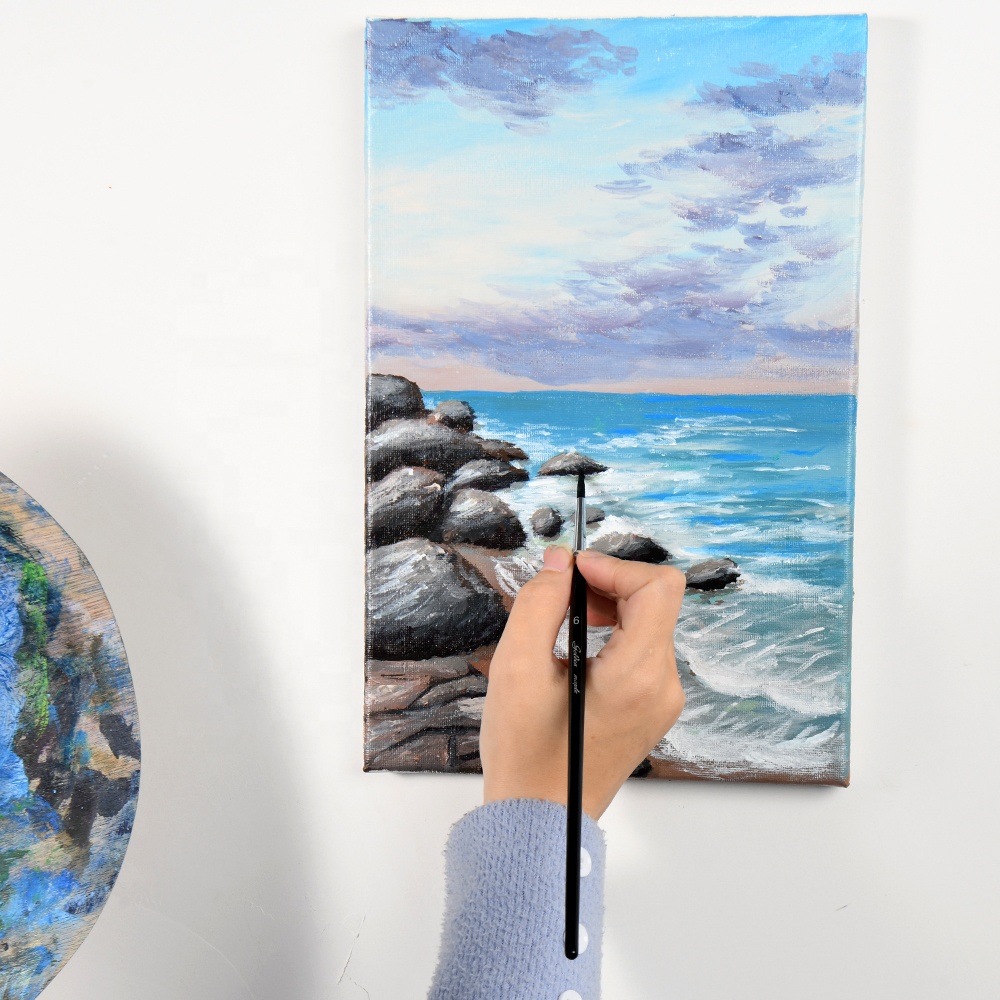Whether you are studying art or want more audiences to see your work, there are many steps you can take to help you develop your career. We ask professionals and graduates in the art world for their suggestions and experience in organizing and getting started.
How to market yourself:
Galleries, collectors and critics need to look at your work before deciding whether to buy it or write about it. In the beginning, self-promotion can be daunting, but it is essential for any artist who wants to expand his audience.
Here are some tips for promoting your work:
Your resume. Make sure your resume is accurate and current. Generally speaking, a good resume must include your contact information, education, exhibitions and other art-related professional activities. We recommend making multiple versions according to the situation.
The artist’s statement. This should be concise and clear, preferably in the third person, so that others can quote in press releases and publicity.
Picture of your work. High-quality, high-resolution jpeg photos are essential. Record all your work and carefully record it in the spreadsheet in the order of your name, title, date, material, and size. Digital formats are becoming more and more popular and are usually the first way people experience your work, so high-quality images are essential.
social media. The best platform for artists is Instagram because it is visual. There are different opinions, but in general, your artist Instagram account should only show your work, maybe exhibitions you have seen. When displaying your work, make sure that the title includes the medium, size, and any other information behind the work. Providing the background is also important, and the installation photos in the gallery are a great way to do this.
Tag people and use appropriate hashtags; the more you interact with social media, the greater your audience.
Artist Resources
www.artquest.org.uk provides excellent in-depth advice on how to prepare a resume and artist statement. It is also a valuable resource for art law and insurance information, and they provide a comprehensive list of funding, residency and exhibition opportunities.
You can also find Open Calls and learn about artist opportunities at www.parkerharris.co.uk, www.re-title.com, www.wooloo.org and www.artrabbit.com. These websites will keep you up to date with the latest developments in the art world and connect you with international exhibitions. ArtRabbit allows you to search for any artist, so you can see where your favorite artists are exhibiting and read information about the exhibition.
Find a representative
A supportive commercial gallery is an ideal career scenario for many artists. There will be several art fairs in every major city, where commercial galleries rent a booth to display the works of the artists they represent.
Remember, galleries participate in art fairs to sell art, so this is not when they want to talk to emerging artists, but introduce themselves in a quiet moment, and then follow up via email to thank them for their time. A better time to say hello may be in the gallery during the exhibition; most people are open to meeting the artist and just try to find a convenient time.
Prizes and group exhibitions
Participating in competitions, awards, and open solicitation for exhibitions are great ways for emerging artists to showcase their works.
It can be time-consuming and costly, so it is worthwhile for selective and strategic applications. Research judges, do you want them to see your work? What type of art are they interested in, and does your work fit their interests? Don’t let rejection discourage you. Andy Warhol once presented his work “Shoes” as a gift to the Museum of Modern Art in New York, but was rejected; he is known for putting a letter of rejection on the wall of his studio to inspire him. Ideal career for many artists. There will be several art fairs in every major city, and commercial galleries rent a booth to display the works of the artists they represent.
Remember, galleries participate in art fairs to sell art, so this is not when they want to talk to emerging artists, but in a quiet moment to introduce themselves, and then follow up via email to thank them for their time. During the exhibition, it may be a better time to say hello in the gallery; most people are willing to meet with the artist, just to find a convenient time.
Post time: Dec-03-2021






